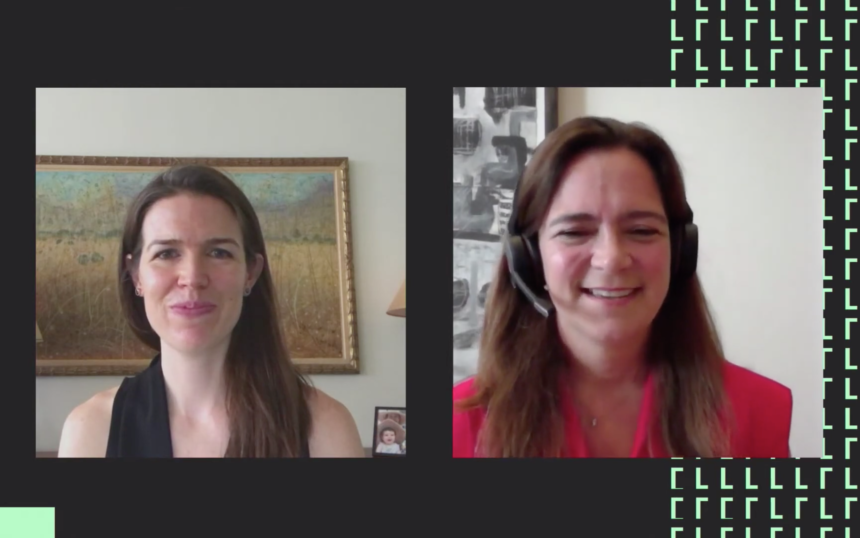Cannes Lions first virtual event touched on many of the current issues from activism to COVID-19. Keep reading for highlights from some of Wednesday’s talks.
Healthcare marketing
Health marketing leader Tamara Rogers, chief marketing officer at GSK, discussed the rapid pivot because of the pandemic and how it accelerated the company’s focus on digital and ecommerce.
Once GSK recognized the pandemic was drastically changing people’s lives and health habits, the marketing team first recategorized its products into four new areas to fit the changing world, Rogers said.
These new categories helped group products by their relevance to consumers who were facing a global pandemic. Products like Chapstick were labeled “premium discretionary” while over-the-counter treatments like Advil fell into its “treatment mainstays” category. OTher products like vitamins and supplements fell into the “prevention arsenal” and it’s oral health business was recategorized as “everyday essentials.”
“We looked at the brand through the eyes of the consumer to make sure we’re living up to our purpose and thinking about the role these brands play in the life of a consumer,” Rogers said. “We when saw this starting to happen in China, we took fast action in China and that informed what we wanted to do when we started to see pandemic come across the world. We want to make sure our communications were appropriate and that we didn’t look like we were completely disconnected from the real world.”
The pandemic also accelerated GSK’s focus on digital and ecommerce, Rogers said. As people around the world were under stay-home orders, online shopping became much more important.
While Rogers said some GSK products are better bought in-store, like over-the-counter medicines so a consumer can speak to a pharmacist, others adapt well to ecommerce.
“It was an accelerator for us in terms of the strategic direction we wanted to go in,” Rogers said. “I think this one is gonna stick. In southern Europe, the ecommerce habit was less well developed. It’s really become a need, more than just a convenience, a need because people were in lockdown, and those habits have been adopted fairly quickly.”
She also discussed how the pandemic has made consumers more aware of their health than ever. Rogers said people are now “thinking about health much more proactively than in the past.”
The session also covered the importance of speaking out and action around diversity because of the Black Lives Matter movement. Rogers said having diverse teams and hearing a diversity of opinions is even more important for a global business to reach the “highest common factor” in every market it serves.
“The clear message is being silent is not enough. To know that you yourself are not racist and are making choices for diversity, but not talking about it is not enough now,” she said. “You need to use power that you have to try to make a difference. I think we need to do more to take really positive and visible actions that send that signal that says although we feel it, we mean it.”
Gender equality
In a panel on gender and advertising, Leaders from Diageo shared lessons learned and steps taken to ensure gender equality in its ads and internally. The leaders discussed steps like ensuring gender equality in its own leadership, implementing a six-month parental leave policy for all employees around the world and changing representation in the messages from its brands.
“As advertisers, we spend billions collectively on stories we tell,” said Diageo’s Andrew Geoghegan. “Stories which have the potential to constrain how people see themselves or to inspire them and we know that this is an issue in advertising.”
The company held unconscious bias training and inclusive environment training for its employees, Geoghegan said, to help change how women are portrayed in ads. The company also instituted a framework to ensure brands were representing genders equally, which includes everything from ensuring women aren’t only appearing in supporting roles in front of or behind the camera.
“Part of this training is about enabling us to identify our own biases that inform the way we approach the work,” said Grainne Wafer, global brand director for Baileys at Diageo.
Brand activism
In another panel, leaders from Edelman and Unilever discussed how COVID-19 and the racial justice movement have turned the industry upside down.
Conny Braams, chief digital and marketing officer of Unilever, discussed how the company rapidly shifted its messaging during the pandemic to show support for frontline workers and promote habits like handwashing, backed up with action like product donations.
“They need reassurance and practical support, it’s not really a time for inspiration, they need action,” said Richard Edelman, CEO of Edelman. “People want super solver brands particularly around affordability, accessibility and self-sufficiency. Brands need to come to us as solvers, not sellers, and tell us how to address the values of their audience. Rational and emotional product benefits aren’t enough. Brands using their power to advocate for change is the most powerful demonstration of brand values.”
Unilever also took action after the death of George Floyd and subsequent protests and movements around the world.
Braam specifically pointed to the Ben & Jerry’s brand, which has participated in social justice movements for years, an attribute that lends credibility to the brand when it made a statement about Black Lives Matter.
“The Black Lives Matter movement magnifies that brands can only play credible roles if their words are authentic and rooted in action from the offset, not as a consequence,” Braam said. “Brands cannot pay lip service to tragedy.”







